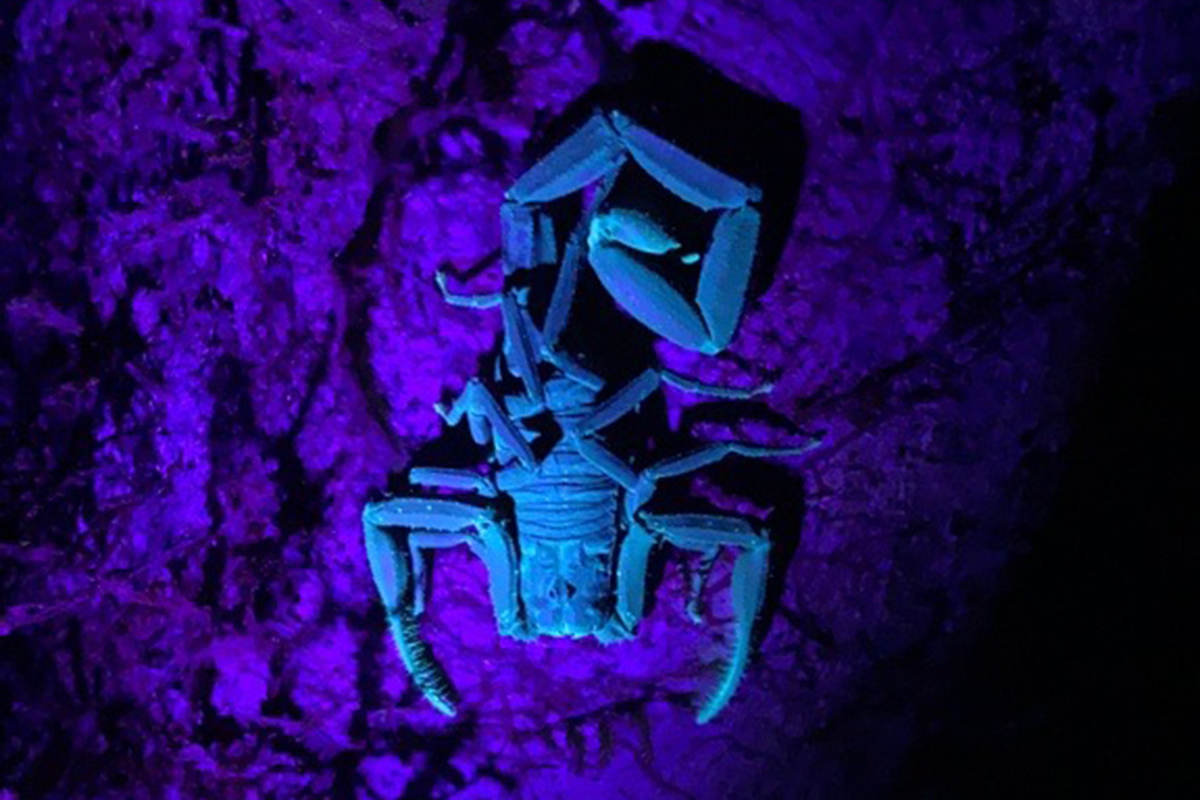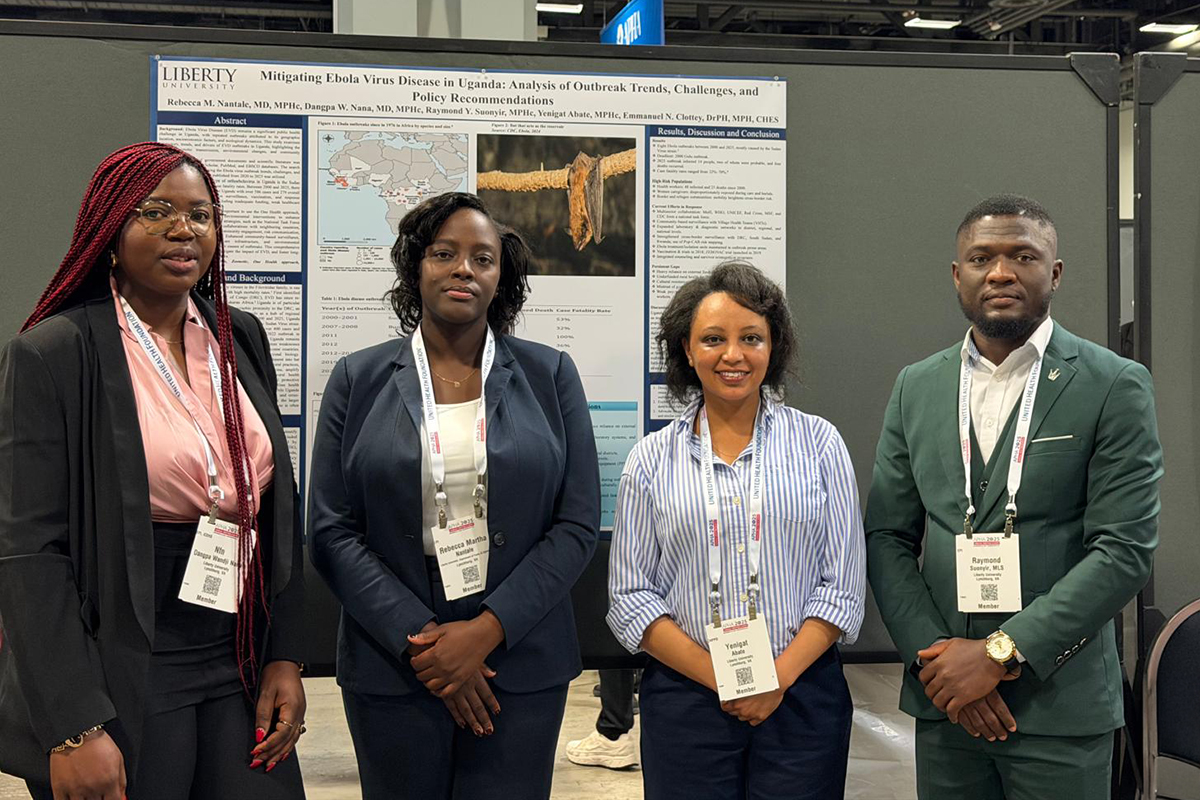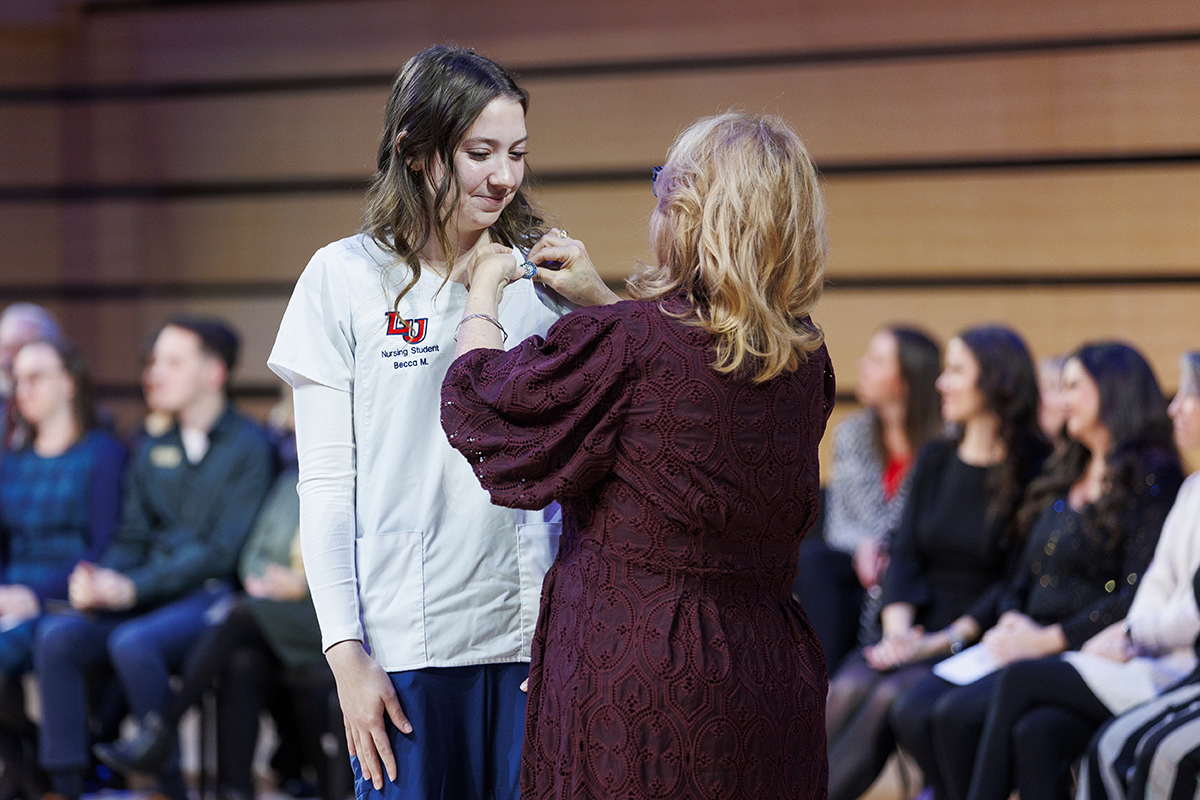Students venture to the Galapagos Islands for a living lab on wildlife biodiversity
January 29, 2021 : By Ryan Klinker - Office of Communications & Public Engagement

Students from Liberty University’s Department of Biology & Chemistry brought their passion for conservation overseas in January for a 10-day field study trip to Ecuador and the Galapagos Islands, applying their knowledge gained through labs and classes to the natural world.
This marks the third year for the annual trip, led by biology professors Dr. Kyle Harris and Dr. Sherrie Welfel in coordination with LU Send, which facilitates all student group travel and experiential learning opportunities in the U.S. and abroad.
The recent trip placed students in a hands-on environment to continue learning about biological sciences within a Christian worldview while on the same islands where Charles Darwin developed his theory of evolution. The Galapagos Islands are a popular research destination, well-known for their diversity of wildlife, with a large number of species that aren’t found anywhere else in the world.
“In a lot of our classes we’ll talk about tropical biodiversity and Darwin’s influence on views of origins, so to be able to go on-site in a tropical location, particularly to the Galapagos and retrace Darwin’s steps and look at it through a Christian theistic paradigm, is invaluable,” Harris said. “At Liberty, we hold Scripture first as our ultimate source of authority, and then through Scripture we look at the sciences and study the created order — or what I like to call ‘God’s spoken world.’”
 From Jan. 9-19, the group of 17 students from Liberty’s biology-related degree programs partnered with Tropical Herping, a local biodiversity organization that focuses on preserving the unique reptiles and amphibians of the area through tourism, photography, research, and education. Given their immersive location in the jungle and shared passion for the “creepy crawly things” of the area, Harris said that Liberty and Tropical Herping will likely continue collaborating in the years to come.
From Jan. 9-19, the group of 17 students from Liberty’s biology-related degree programs partnered with Tropical Herping, a local biodiversity organization that focuses on preserving the unique reptiles and amphibians of the area through tourism, photography, research, and education. Given their immersive location in the jungle and shared passion for the “creepy crawly things” of the area, Harris said that Liberty and Tropical Herping will likely continue collaborating in the years to come.
“We actually lived in a research station in the jungle, and students even got the full experience of bats and geckos in the cabin and just a full cultural experience, too,” he said. “We’re trying to not just go as a tourist, but instead to study the culture, collaborate with scientists, and help students see the practicality of fulfilling our stewardship and dominion mandate without abandoning our belief in God’s Word.”
Students joined several of Tropical Herping’s ongoing projects, including late-night surveys to create an up-to-date field guide of the reptiles and amphibians in Jatun Sacha, one of the most biodiverse regions on the planet. Harris was also able to use the amphibians collected from these searches to conduct research on a skin disease in the various species, the findings of which will be used for one of the student’s honors thesis.

“I think this research project can grow into multiple other projects that can become embedded in the (coursework) with a focus of biodiversity, looking at wildlife disease and ways that we can collaborate with these scientists,” Harris said.
Sophomore Abigail Billing was so inspired by her field experience on the trip that she has decided to major in zoo & wildlife biology.
“Since I’m a sophomore the extent of my experience has been in the lab or the classroom, so being able to get out there into the field was awesome,” Billing said. “It showed me that I want to do something out in the field and something to do with conservation or wildlife. It really helped me figure out what I wanted to do with my future, and it was a cool experience because it’s something I’ll probably be doing in the future.”
Liberty’s group also hiked through lava tubes (caves formed by lava flows), interacted with giant tortoises at the highlands of Santa Cruz Island, snorkeled and observed the native fauna of Santa Fe Island, and visited a conservation center for endangered frogs and toads. Billing said one of her favorite activities was when groups of students were assigned their own 10-by-10-meter plots of land and told to survey it for living things.

“Any species of animal we found, frogs or insects or whatever there was, we had to take note of it,” Billing explained. “It was what (Tropical Herping workers) do in their day-to-day life, but they were having us do it and have the experience for ourselves. We had fun with it; we made it a contest of who could find the most species. I think that was a favorite part of mine because it was so hands-on and realistic to what you’d do in the field.”
Much like other LU Send course trips, this field study included a half-day service component in which students split into three groups to help improve different enclosure environments for animals being researched in captivity. These activities included collecting specific leaves and sap usually found in the natural diet of spider monkeys and golden tamarins, installing tree branches in parrot enclosures, and collecting plants for peccaries (a pig-like mammal) to eat.
Harris said that the trip will likely remain an annual activity each January, and he added that trips to new locations — such as Thailand, Panama, Madagascar, Australia, or Borneo (in southeast Asia) — are in the works and would give students from other academic disciplines the chance to earn their general science course credits.
“The hope is that we can continue this partnership and connect our students on a global platform with conservationists as they bring Christ with them, too,” Harris said. “I’d love it if we had business students, arts students, biblical studies students, and more who want to pick up their science Gen Ed credits by joining us. In terms of research, vocation, future trips, I’m really excited.”


